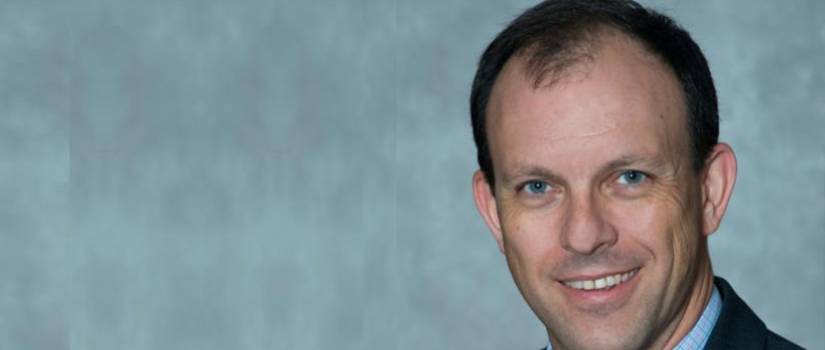The difference is an important nuance. The student’s eyes widen, an indication she understands. Then she runs through the scene again and nails the connection. “I had a couple of goose bump moments there,” Duffy says. The student clearly is having one of those moments as she hears his words.
This short interaction encompasses many layers of Duffy’s job. As head of the Master of Arts in Teaching program in the College of Arts & Sciences, he instructs theatre education graduate students who plan to teach. He also teaches how to use theater techniques to draw in students in any classroom.
“Teaching is the art of spinning many plates simultaneously,” Duffy says. “I try to help the MAT students figure out how to do that and how to develop the capacities to catch plates when they inevitably fall.”
One of the keys is to engage the students. Theater education concepts can do that, whether the subject being taught is drama or math or history.
“I think everybody should have acting training,” Duffy says. “It is an incredible tool to learn how to figure out what people’s motivations are. It’s character analysis.
“As a teacher, it’s useful to realize that children have only two options: They can either say yes or no to whatever you’re doing in the classroom. If they’re saying no, you have to listen to that and try to figure out why. The more you think about that, the better your teaching becomes because you can anticipate where that no comes from and learn how engage each child. Actor training helps you do that.”
Duffy’s epiphany on the importance of theater education came a few years into his own career. He was teaching German and English at the middle school level in Maine when his principal asked for a volunteer to direct a school play. Duffy, who had done some acting in high school, agreed to do it.
He was amazed at the overlap between the techniques for helping students understand the characters in a drama and those that can engage students on any subject matter. He delved into workshops and took classes on drama instruction, and he realized a new passion.
He went back to school to get his Master of Fine Arts at University of North Carolina Greensboro before taking a job as an education director for a New York theater company. Seven years ago, he jumped at the chance to teach drama teachers at USC.
Most of his work in the College of Arts & Sciences is with graduate students, though he teaches an undergraduate theater appreciation class and his 500-level courses on theater in education are open to undergrads. All of the classes incorporate the theater principles that can enliven any classroom.
“I’m always looking at the overlap between theater process and learning,” Duffy says. “What happens in classrooms when we use our imaginations? How do we engage our emotions? What happens when we use our bodies? It can trigger learning in really specific and interesting ways.”
Duffy is working with cognitive psychologists on a project aimed at getting a scientific handle on why theater education works. He wants to detail how theater education techniques squeeze ideas and concepts into the brain differently than simply reading a book or following along to a PowerPoint lecture.
One of his goals is to show that arts education can be as important as, and can bolster, the Science, Technology, Engineering and Mathematics tract that has become the emphasis in education circles in recent years.
“Whatever the popular jargon of the day is, whenever they start to talk about quality teaching and learning, it always looks like an arts classroom. They are engaged, creative and active classrooms where the curriculum becomes personalized.” Duffy says.
Theater education forces students to be creative, be responsible for their choices and work in a collaborative environment.
“I think those are really important life skills, and that’s all through drama,” Duffy says. “The last thing I personally care about is whether somebody is going to become an actor. If we get students on their feet, if we get students to think about other perspectives, if we have them asking authentic questions and playing their way to learning, if we get students to work together to create shared meaning, that’s a much different relationship to school and schooling.”
